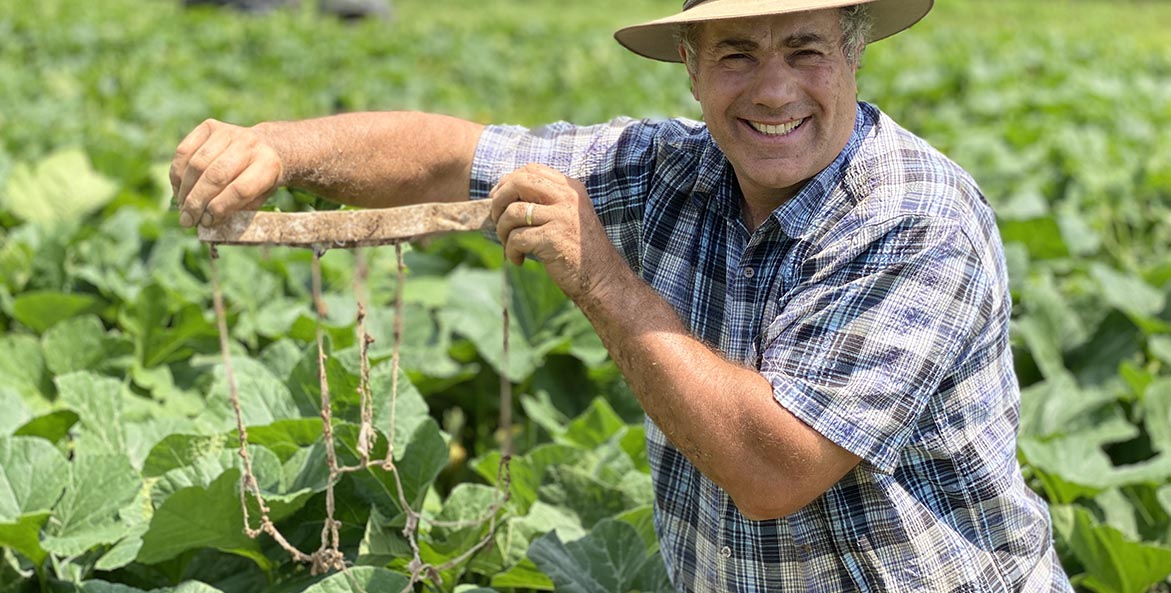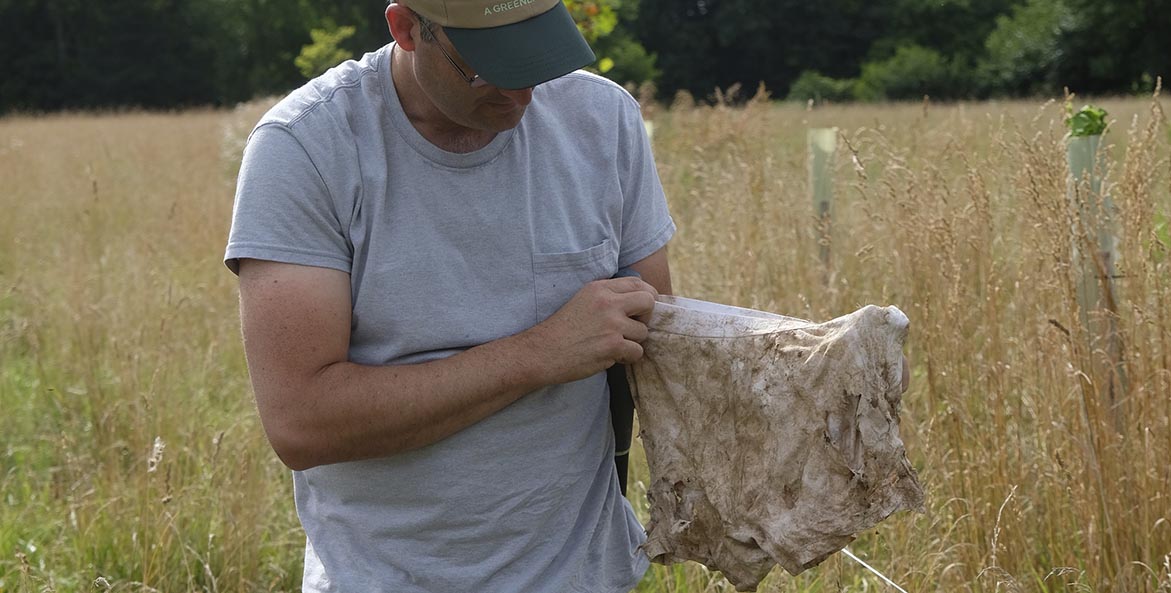This summer, farmers and landowners across Pennsylvania were digging up new information about soil health from their underground undies.
Participants statewide signed up for the Soil Your Undies (SYU) campaign as a unique way to see if their soil has a rich population of microbes—organisms working hard to create the healthy soil that makes farmland more productive and reduces the amount of polluted runoff entering local rivers and streams and, ultimately, the Chesapeake Bay.
Soiling For Science
For the SYU exercise, participants planted pairs of 100-percent-cotton underpants in late May and unearthed them in July. The premise was that once the undies were planted, microbes in the soil would feast for 60 days on cotton as a carbon food source. The more active the microbes, the more cotton decomposition, the healthier the soils.
In Lancaster County, Steve Groff's boxer briefs were reduced to the elastic waistband and dangling strings of cotton where seams used to be. Lisa Blazure was watering her undies. Nathan Drager's boxer briefs were just plain dirty.
"In addition to breaking down fabric, some microbes work to recycle dead plant material into nutrients that the plants can use to reduce crop fertilizer needs," Kelly O'Neill, CBF Agricultural Policy Analyst in Pennsylvania, says. "Others form networks among plant roots to hold soil and nutrients in place. This keeps them where needed and prevents nutrients and soil from polluting local waterways."
"We are learning that it's the microbes, the bacteria, the fungus, the predators that drive the whole nutrient cycle in our soils that feeds the crops," Blazure says. She is the Soil Health Coordinator for Stroud Water Research Center and the Pennsylvania Soil Health Coalition. "It applies to backyard gardeners and flower beds as well. The natural system has this huge ability to feed and sustain itself without so much fertilizer."
Microbes cannot break down synthetic fabrics, so the waistband was just about all that was left of the undies planted by Steve Groff.

Steve Groff with the little that remained of the boxer briefs he buried as part of the Soil Your Undies campaign.
Matt-Steinruck
Nurturing Microbes
No-till and cover crop practices, as well as plant diversity, contribute to the presence of microbes and healthy soil as demonstrated by the undies unearthed at Groff's farm.
"We want to encourage farmers to have more crops in the system, especially when you can have animals in the system," Blazure says. "Pasture fields typically have much better soil health quality than a field that is just corn and soybeans and no cover crops."
Continuous no-till leaves soil undisturbed, and the aggregation, worm holes, and route channels have a nice, crumbly soil texture, Blazure says. "Cover crops keep the soil loose. Farmers call it 'mellow' soil."
Good soil health helps the earth to retain moisture. In heavy rains, the water will be stored in the soil and available instead of running off.
O'Neill was surprised that microbes had hardly touched the cotton undies that Drager, a beef farmer, buried. "I thought that was going to be a prime example of good soil health," she says. "Studies have shown that fields of perennial grass cover with livestock on them often have the best soil health," O'Neill adds. "Also, cover crops and perennial pastures will keep the soil cooler, and it's less likely to dry out."
Blazure says that in very dry conditions, like those encountered by Drager's undies, earthworms go deeper and microbes are dormant. She was watering her underground undies once a week to support and encourage local microbes.
O'Neill says farmers can test for soil health without boxer briefs by digging and looking for earthworms. "Soil should be crumbly but with clumps that are held together; when it rains, you should see water infiltrating instead of ponding on the top and then running off," she says. "If you have diverse plants and livestock in a field, you are going to have a lot of diversity in the microbes."
Soil Your Undies challenges have been taken worldwide, from the United States to Australia. Lisa Blazure says the SYU challenge will be underground in Pennsylvania again in 2023.
The campaign intends to reinforce the collective goal of educating communities on the importance of soil health and emphasizing its connection to ecosystems and clean water.
"Hopefully fields with good soil health will be more resilient to extreme weather," O'Neill adds, "with less risk of severe crop loss with drought or torrential rain. If the soil is healthy and water is infiltrating, it's not running off, carrying nutrients and sediment to local streams that would then harm the Bay."
With CBF, the Pennsylvania Soil Health Coalition, and undergarments brand The Big Favorite, other lead organizations for the Commonwealth's first Soil Your Undies challenge were USDA's Natural Resources Conservation Service, All Together Now PA, Pasa Sustainable Agriculture, Stroud Water Research Center, and Lancaster Water Week.
Visit the Soil Your Undies website for more information on the campaign.




